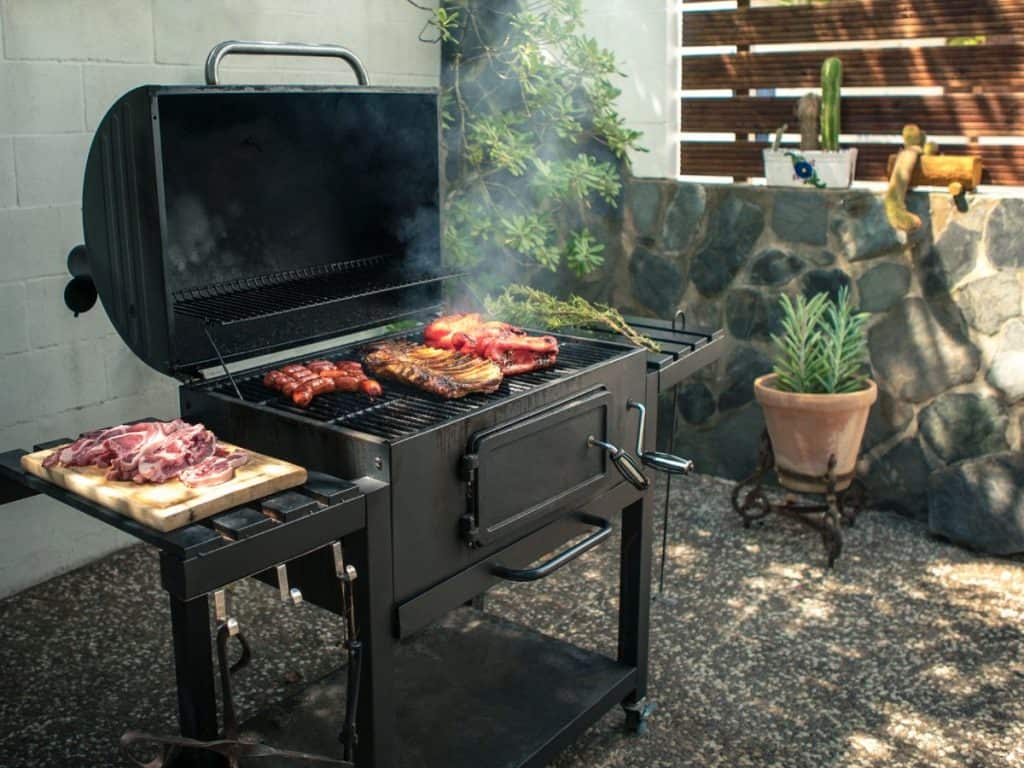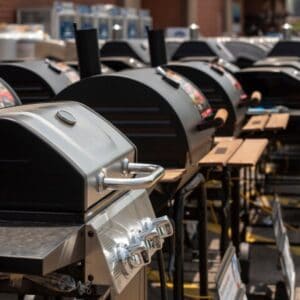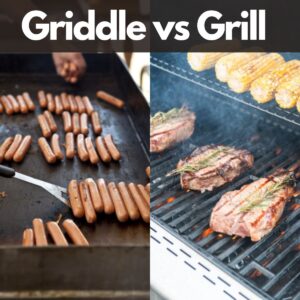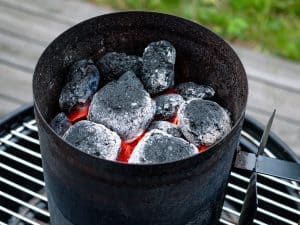Today we answer a common question often debated by backyard grill masters: How far should a grill be from your house for safety?

You want your grill to be close enough to your house so you don’t have to walk a mile to cook dinner. But how close is too close?
Most grill manufacturers recommend a minimum clearance of 3 feet between a grill and a house. The U.S. Consumer Product Safety Commission (CPSC) goes even further and suggests no grill should be used within 10 feet of any house or building.
While keeping your grill at least 10 feet away from your house is ideal, it’s not always possible. Depending on the size and shape of your yard there may be no physical way for you to keep it that far from a house, fence, shed, or other structure. That said, you should always keep at least 3 feet between your grill and your house while cooking.
Of course, this is only when the grill is lit. It’s ok to keep a cold grill right up against the house so it’s out of the way when not in use. Most grills have wheels which make them easy enough to move when you’re ready to cook. When you’ve finished cooking just roll it back into place.
What Can Happen If Your Grill Is Too Close To Your House?
Whether you’re using propane, charcoal, or wood as a fuel, all grills produce flames that can set your house on fire. You might think the flames will be contained but a grease fire can erupt out of nowhere. Out of control flames can quickly spread to a nearby house.
If you’re using charcoal or wood, flying embers could escape and land on flammable materials and set them afire as well. This is why you can’t just worry about the distance between your grill and house. You also want to keep your grill a safe distance away from any fences, sheds, bushes, and trees that could be set alight.
Even if the fire itself doesn’t get out of control, the heat it generates can do plenty of damage on its own.
My neighbor bought a new grill and set it up right next to one of the exterior walls of his house, and he learned the hard way that vinyl siding and grills don’t mix.
The intense heat coming from a lit grill can actually melt vinyl siding and distort it’s shape. Wood siding may get hot enough to catch fire itself and the heat can also kill any plants or bushes that are too close.
Even a house made of brick or stucco is not impervious to damage from a grill placed too close for comfort. Brick may not burn but it can be discolored by the heat or stained by smoke.
What About Grilling In The Garage?
Grilling in the garage is never a good idea. Besides the obvious risk of fire, you may also be venting dangerous carbon monoxide fumes into your home. Carbon monoxide is colorless, odorless, and tasteless so it could be slowly poisoning your family and they would never know until its too late.
Even if you keep the garage door open, lighting a grill indoors is way too dangerous. If the weather outside won’t let you light the grill safely, you’re better off ordering a pizza than trying to use a grill in your garage.
Barbecue Grilling Safety Tips
Keep a fire extinguisher handy when grilling. Even if your grill is a safe distance from your house mishaps can still happen. If you have a flare up you won’t have time to go searching through the garage trying to find a fire extinguisher that’s buried in junk.
Never add lighter fluid to fire that’s burning or smoldering as it can cause an explosion. You’re better off using one of these lighter fluid alternatives anyway.
If you’re using an electric or pellet grill that needs to be plugged in, be sure to use a heavy duty extension cord that’s rated for outdoor use.
Don’t lean over the grill or wear loose clothing that hangs low and catch fire in the flames.






Leave a Reply